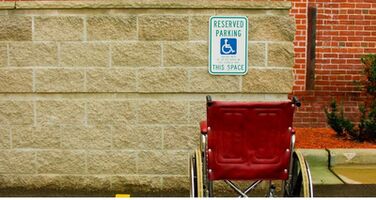
Understanding the Eligibility Criteria for a Handicap Placard in Illinois: Navigating Mobility Assistance
Introduction:
Navigating the eligibility criteria for a handicap placard in Illinois can seem like a complex process, but it doesn't have to be. Whether you're seeking assistance for yourself or a loved one, this guide will provide you with the essential insights to simplify the process and make informed decisions. In this article, we'll delve into the criteria, application process, and benefits of obtaining a permit in Illinois, empowering you to enhance your mobility and accessibility.
Understanding the Eligibility Criteria for a Handicap Placard in Illinois
Obtaining a disability pass in Illinois involves meeting specific criteria that ensure those in need receive the assistance they require. The following criteria outline who is eligible for a handicap permit:
Residency Requirements
To apply for a pass in Illinois, you must be a resident of the state. Residency is established by providing a valid Illinois driver's license or state ID card.
Medical Certification
Applicants need to obtain medical certification from a licensed healthcare professional. This certification should clearly state the medical condition or disability that necessitates the use of a disability permit.
Temporary or Permanent Disabilities
Handicap permits are available for both temporary and permanent disabilities. Temporary ones are typically valid for six months, while permanent ones are valid for four years. Renewal requires re-certification by a medical professional.
Impaired Mobility
Individuals with impaired mobility due to conditions such as difficulty walking, use of assistive devices, or respiratory limitations are eligible.
Visual Impairments
Applicants with visual impairments that affect their ability to operate a vehicle safely are also eligible.
Veterans with Disabilities
Veterans with disabilities, whether incurred during service or later in life, can apply for a disability permit to facilitate their daily activities.
Organ Transplants
Those who have undergone organ transplants may experience temporary mobility limitations during recovery and are eligible.
Application Process for a Placard in Illinois
Understanding the application process is crucial for a smooth experience in obtaining a handicap placard:
Consult a Healthcare Professional: Schedule an appointment with a licensed healthcare provider to obtain the necessary medical certification.
Download the Application Form: Visit the Illinois Secretary of State website and download the Application for a Person with a Disability Parking Placard or Plates (Form VSD 62).
Complete the Form: Fill out the application form with accurate personal and medical information. Make sure to sign and date the form.
Medical Certification: Have your healthcare provider complete the medical certification section of the application form.
Submit the Application: Mail the completed application form to the Secretary of State facility. Alternatively, you can submit the application in person.
Required Documents: Include a copy of your Illinois driver's license or state ID card, as well as any supporting medical documentation.
Payment: Payment is typically required. Check the current fee on the Secretary of State website.
Processing Time: The processing time for an application varies. Temporary permits are usually issued more quickly than permanent ones.
Benefits of Obtaining a Handicap Placard
Having a disability permit can significantly improve the quality of life for individuals with mobility challenges. Here are some key benefits:
Accessible Parking: Allows you to park in designated accessible parking spaces, which are often closer to entrances, making it easier to access buildings and facilities.
Reduced Walking Distance: Accessible parking spaces reduce the distance you need to walk, minimizing fatigue and discomfort.
Enhanced Independence: With closer parking, individuals with mobility issues can engage in activities independently, without relying on others for assistance.
Convenience: Provides the convenience of easily finding parking, especially during busy times.
Medical Appointments: Accessible parking spaces are particularly valuable when visiting healthcare facilities for appointments or treatments.
FAQs
Q: Can I use my disability pass in other states?
A: Yes, most states recognize and honor out-of-state passes, but it's essential to familiarize yourself with local regulations.
Q: Can a temporary pass be renewed?
A: Yes, temporary passes can be renewed if your medical condition persists. You'll need to obtain recertification from a medical professional.
Q: Can a family member use the pass?
A: The pass is meant for the individual it was issued to. It should not be used by family members unless they are transporting the authorized holder.
Q: How do I replace a lost or stolen pass?
A: To replace a lost or stolen pass, you'll need to submit a Lost/Stolen Person with Disabilities Certification for Parking Placard/License Plates (Form VSD 415) to the Secretary of State facility.
Q: Can I lend my pass to someone else?
A: No, these are non-transferable. They should only be used by the individual for whom they were issued.
Q: Are there fines for misusing a disability pass?
A: Yes, misusing a pass can result in fines and penalties. It's crucial to use the permit only when the person it was issued to is present.
Conclusion
Navigating the eligibility criteria for a handicap placard in Illinois is a process that ensures those in need of mobility assistance receive the support they require. By understanding the residency requirements, medical certification, and benefits of obtaining a pass, individuals can enhance their independence and accessibility. Remember that accurate and up-to-date information is essential, and consulting the official Illinois Secretary of State website is advisable for the most current guidelines. So, if you're eligible, take advantage of this valuable resource to improve your mobility and overall quality of life.
.png)






